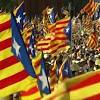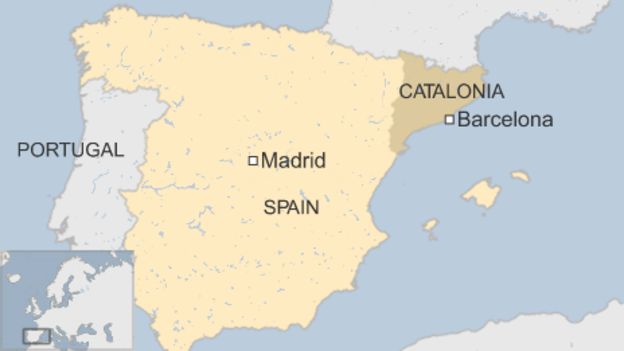Catalonia demands the right to decide its own future
Catalonia (Catalan: Catalunya ) is located on the northeastern extremity of the Iberian Peninsula and is designated as a nationality by its Statute of Autonomy. It has its own language, laws and customs. Carles Puigdemont is the current President of the Generalitat of Catalonia and is elected by the Parliament of Catalonia. Last Friday, he announced that an independence referendum is to be held on 1 October, in defiance of the Madrid government. The question to be voted on will be: "Do you want Catalonia to be an independent state in the form of a republic?"
In November 2014 Catalonia held a non-binding vote, called a "consultation", in which 80% of those who cast ballots backed independence. However, Spain's Constitutional Court had ruled it illegal. But supporters of independence viewed it as a defining moment. In 2015, Catalan nationalist parties won an absolute majority in the 135-seat regional assembly and voted to start the process towards independence. Catalonia is now on a collision course with Spain. Spanish Prime Minister Mariano Rajoy has rejected all attempts to hold a referendum, insisting a vote would be unconstitutional and seeks the country’s Supreme Court to block the vote.
This attempt by the Spanish government to stamp on the Catalan people's democratic right to vote on independence is likely to only increase hostility to Spain. Economic and cultural grievances have long fuelled Catalan demands for freedom from Spain. The threat to stifle democracy has resulted in demonstrations in Catalonia with a clear message that even though the Spanish state does not want it, Catalans are determined to decide upon their own future.







